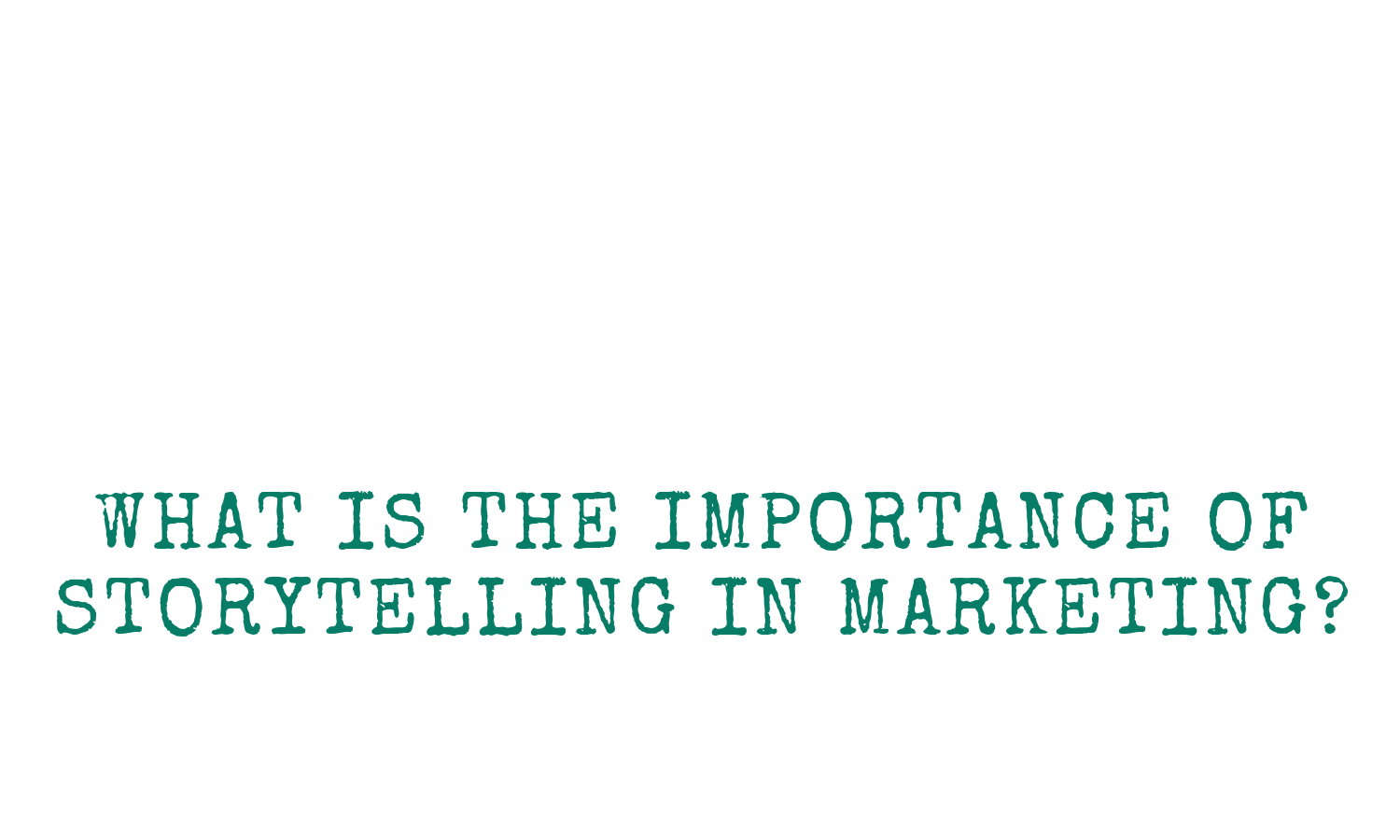Why Is Everyone in Marketing Now Identifying as a Storyteller?
In recent years, it seems like every marketer and brand enthusiast has adopted the title of "storyteller." You can hardly attend a marketing conference or read a blog post without someone proclaiming themselves a master of the craft. But why has storytelling become such a ubiquitous buzzword in marketing? Is it just a passing trend, or does it hold some substance? Let's dive into the phenomenon and explore why storytelling has taken center stage in the world of marketing.
Human Connection is Key
The fundamental reason behind the surge in storytelling within marketing is the deep-rooted human desire for connection. Stories have been a part of our culture for millennia, serving as a way to share experiences, convey emotions, and pass down knowledge from generation to generation. In a world of fast-paced digital content and fleeting attention spans, storytelling stands out as a powerful tool to engage and connect with consumers on a more personal level.
People don't just want to buy products or services; they want to align themselves with brands that share their values, experiences, and aspirations. A well-crafted narrative can make a brand relatable, memorable, and trustworthy, facilitating a stronger connection between a company and its audience.
Differentiation in a Crowded Market
The competition in the marketing landscape is fiercer than ever before. Every industry is saturated with brands vying for consumer attention. In this environment, storytelling becomes a means to stand out from the crowd. A compelling story can set a brand apart, making it more memorable and appealing to consumers who are bombarded with advertising messages daily.
Consider Apple, a company known for its innovative products, but also for its remarkable storytelling. The iconic "Think Different" campaign, along with Steve Jobs' keynote presentations, weaved a narrative that made Apple more than just a technology company; it became a symbol of creativity and thinking differently. By effectively using storytelling, Apple forged a unique identity and set itself apart from competitors.
Emotional Resonance Sells
Emotions are a powerful driver of consumer behavior. While facts and figures may inform decisions, emotions are often what lead to action. Storytelling has the ability to tap into these emotions, creating a stronger bond between a brand and its audience. When people connect with a brand on an emotional level, they are more likely to become loyal customers, advocates, and even evangelists.
For example, Dove's "Real Beauty" campaign focuses on body positivity and self-esteem. The emotionally charged storytelling in their advertising not only helped sell products but also resonated with consumers on a deep, personal level. This emotional resonance translated into customer loyalty and positive brand associations.
The Continued Rise of Content Marketing
The advent of content marketing has played a significant role in the proliferation of storytelling in marketing. Content marketing is all about providing valuable, relevant, and consistent content to attract and engage a target audience. Storytelling is an integral part of this strategy, as it allows brands to create content that is not just informative but also captivating and relatable.
From blog posts and social media updates to videos and podcasts, the content landscape is rife with storytelling opportunities. Companies now have the means to share their brand stories through various mediums, making it easier to connect with different segments of their audience.
Evolving Consumer Expectations
Consumers today have higher expectations for the brands they support. They want more than just products and services; they want a meaningful, authentic experience. Storytelling is a way for brands to demonstrate their values, vision, and authenticity. By showcasing their journey and the people behind the brand, companies can build trust and credibility with their audience.
The rise of storytelling in marketing is not a mere trend; it's a response to the changing landscape of consumer expectations and the need for meaningful connections. Storytelling allows brands to differentiate themselves in a crowded marketplace, tap into the power of emotions, and create lasting bonds with their audience. So, while everyone might claim to be a storyteller in marketing, the ones who truly master this art will be the ones who succeed in building lasting, meaningful relationships with their customers.
Tell those stories, storytellers.





